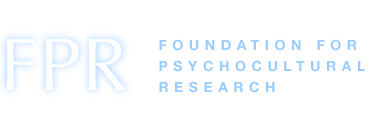Digital Social Connection and Immune Biology During COVID-19, NSF Grant
CMB member Jeffrey Snodgrass has been awarded an NSF to study “whether, when, and how social connections through the internet and other electronic means promote rather than compromise health at the level of immune biology during the current pandemic crisis.”
From the August 7, 2020 announcement:
The positive impacts of social connections on general health and immune biology are well-documented. However, during the current health crisis, digital interactions necessarily substitute for conventional, person-to-person contacts, especially during key periods such as lockdowns, with potential negative health impacts for some, but with compensatory and thus positive impacts for others. Researchers do not yet understand whether these decreases in face-to-face social interactions might be beneficially compensated by increases in digital social connections, and so sustain health and immune biology. In this study, we anticipate that the social support emerging adults (U.S. undergraduate students) find in digital social contexts might help them maintain their immune function via digital proxy social interactions that nevertheless satisfy real-world psychosocial needs, and thereby influence their health because of the link between social contact and immune biology. The primary contributions here are to a) provide better evidence for whether social connectedness through digital means affects immune biology; and b) analyze the content and process of digital interaction to determine which relational strategies are helpful/ healthy and which are counterproductive/ dysfunctional. Validating this projects? central hypotheses will lead to the development of new perspectives and practical interventions on how to maintain health during pandemic events and other disasters. The involvement of students as research collaborators contributes to their educational development. The research team will also develop for the larger public educational materials documenting this study. Overall, the project serves as a model of integrated anthropological research, education, and public engagement.
The research combines psychological anthropological approaches with genomics studies of how social experience affect gene expression to gain new biocultural perspectives on health resilience. The study draws from and contributes to theoretical understandings of what anthropologists call cultural consonance, roughly, the extent to which individuals are congruent (or not) with socially shared norms regarding proper behavior and interaction, which has well-documented health linkages. Offline/ online cultural consonance will be assessed via online questionnaires, where the research team will also collect other relevant social interaction, demographic, and health data (such as digital technology use, mental health, and respiratory symptoms). Via blood samples, the research team will assess respondents? immune biology (antiviral and inflammation activity), analyzing the samples to see if and how gene expression related to immune function changes. The study will observe participants over time to document how changes in consonance with offline/ online social norms are associated with changes in immune biology/ COVID symptoms. These linked social support and health processes need to be examined now at the peak of the epidemic and its initial sweep through the population, as behaviors and biology change rapidly in ways that establish subsequent long-term trajectories of individual behavior and health.
This award reflects NSF’s statutory mission and has been deemed worthy of support through evaluation using the Foundation’s intellectual merit and broader impacts review criteria.



